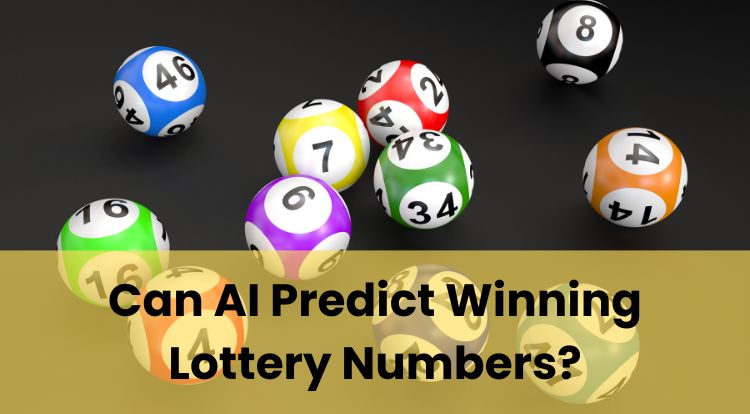
The idea of using Artificial Intelligence (AI) to predict winning lottery numbers sounds exciting. Imagine feeding past lottery data into a super-smart computer and getting the next winning numbers.
However, it's important to know that this is not possible. Each lottery draw is an independent event, which means that the outcome of one draw has nothing to do with the next. The lottery is a random game of chance, with numbers drawn completely at random.
Analysing past results won't help in predicting future outcomes. The randomness of the lottery means that no pattern or trend can be relied upon for future draws.
In this blog post, we will dive deeper into why AI, despite being powerful, can't predict lottery numbers. Understanding the nature of lotteries is key to making informed and safe gambling decisions.
Can Artificial Intelligence Predict The Lottery Numbers?
Artificial Intelligence (AI) can process massive amounts of data and make sense of complex patterns. This makes it incredibly useful in fields like medical research, finance, and weather prediction.
But when it comes to predicting lottery numbers, AI hits a wall. Each lottery draw is an independent event. This means the draw is random and has no connection to previous draws.
Lottery numbers are chosen randomly. This randomness is key; it ensures that each draw is fair and unpredictable because each number has the same chance of being drawn every time, regardless of previous draws. No matter how powerful an AI is, it can't predict random events accurately.
AI can analyse past lottery results and even find patterns. However, these patterns are purely coincidental. They offer no real insight into future draws because each draw operates independently from the others.
In short, while AI is brilliant at many things, predicting lottery numbers isn't one of them. Lottery games are based on random chance, making their outcomes impossible to forecast with any tool, AI included.
Can AI Beat The National Lottery?
People often wonder if AI can be used to beat the National Lottery. After all, AI can solve many complex problems. However, the lottery's nature makes it difficult for AI to win consistently.
As mentioned before, the National Lottery involves random draws. Each draw is independent and not influenced by previous draws. This randomness ensures fairness and unpredictability.
No matter how advanced AI becomes, it can't influence or predict these random outcomes. Analysing past lottery results won't help either, as they do not offer clues for future draws - there is no pattern to identify.
Even strategies like choosing less common numbers don't increase your chances of winning. They might only affect how the prize is shared if you win, not your chances of winning in the first place.
In summary, while AI is powerful, it can't beat the National Lottery due to the game's inherent randomness and independence of each draw. Gambling should always be seen as a form of entertainment, not a way to guarantee financial gain. Always play responsibly.
Can ChatGPT Be Used To Win The Lottery?
ChatGPT is a type of AI designed to understand and generate human-like text. It can write essays, answer questions, and carry on conversations. However, it's important to be clear about what ChatGPT can and can't do.
When it comes to winning the lottery, ChatGPT can't help. Each lottery draw is an independent event, meaning the numbers are chosen randomly, and previous results have no bearing on future draws.
Even though ChatGPT can process and generate text based on patterns, it can't predict random events. The lottery is a game of chance designed to be fair and unpredictable.
So, while ChatGPT is useful for many tasks, using it to pick winning lottery numbers isn't one of them. The outcomes are simply too random for any AI, including ChatGPT, to forecast.
Is The National Lottery Truly Random?
Many people wonder if the National Lottery is truly random. Let's break down why it is, indeed, random.
Each lottery draw is an independent event. This means that the outcome of one draw doesn't impact the next. The numbers are chosen by a random process using machines designed to ensure fairness.
These machines use air or other methods to mix the balls thoroughly, ensuring that each number has an equal chance of being picked. Independent auditors and regulations are in place to make sure the process is fair and transparent.
Because the National Lottery aims to be fair, analysing past results is useless for predicting future numbers. There is no pattern or trend to identify, and nothing can be done to influence what numbers will be drawn next.
So, in short, yes, the National Lottery is truly random. This randomness ensures every player has the same chance of winning, no matter what numbers they choose. So, be sure to play responsibly and set realistic expectations.
